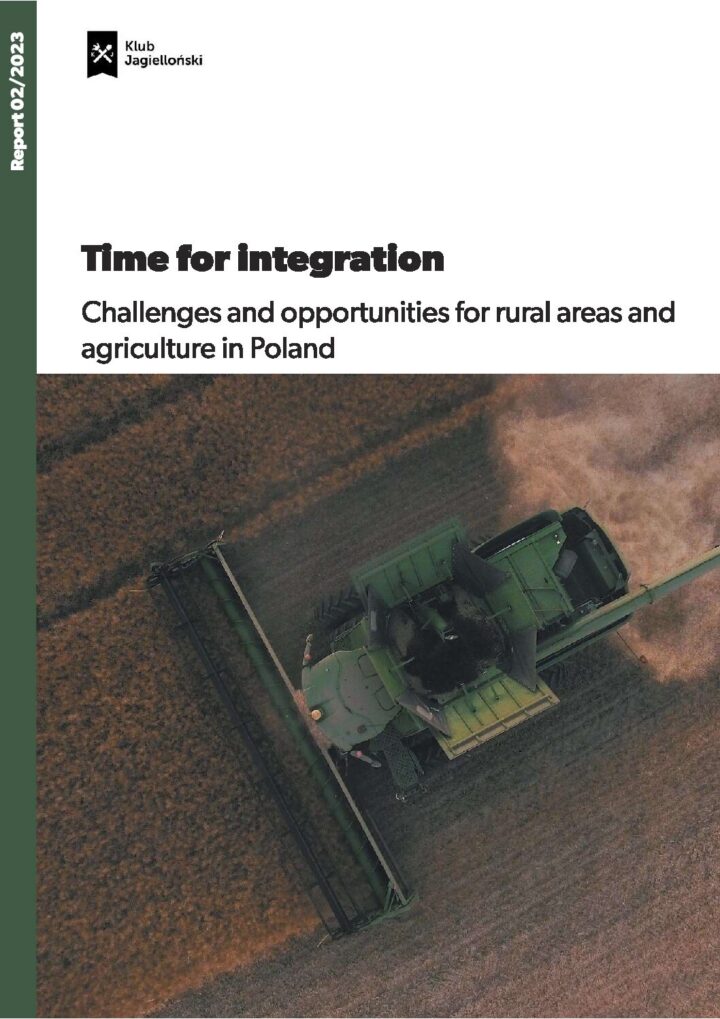Time for integration. Challenges and opportunities for rural areas and agriculture in Poland

Too seldom in the polarised public debate and in the emotional speeches of politicians have the issues of the diversity of the Polish rural areas and the multidimensionality of the structural challenges facing rural areas, and in particular farmers, whose share in the rural social structure is diminishing, been raised. Fragmented and moderately eco-efficient agriculture, ageing of peripheral villages, migration to larger centres and their agglomerations – these are just some of the problems that the Polish rural areas will have to face in the coming years.
Moreover, external turbulence—such as the COVID-19 pandemic, the European energy crisis and the war in Ukraine—has put additional pressure on farmers’ welfare and raised questions about the future of rural areas and ensuring their sustainability resilient to external crises. In addition, the European Green Deal and the new perspective of the Common Agricultural Policy place stronger emphasis than ever in the agricultural sector on meeting ambitious climate targets which, although extremely important and necessary in the face of the worsening climate crisis, do not always correspond to our country’s capabilities and too often ignore questions about ensuring food security, the competitiveness of Polish farms and achieving affordable prices for consumers.
With this report, we aim to present to a wider group of readers the all too rarely raised challenges and opportunities facing agriculture and rural areas in Poland. Each chapter also includes recommendations for Poland on how to address the above trends and ensure welfare and development in rural areas, including with a focus on agriculture. The publication also takes a look at Polish agricultural food exports, the potential new role of the National Food Group and the phenomenon of energy poverty in rural areas, which affects farmers as well.
The publication of the report was preceded by 10 expert seminars attended by almost 70 experts, whom we thank for their time. Moreover, we would like to express our sincere thanks for the cooperation of the project partners, the Polska z Natury Foundation, part of the Our Common Home network, without which the publication of this report would not have been possible.
The publication was created as part of the project 'Challenges and Opportunities for the Countryside and Agriculture in Poland’, carried out in cooperation with the Poland from Nature Foundation, which is part of the Our Common Home network.
This publication is openly shared. The work (excluding graphics) is made available under the Creative Commons Attribution 4.0 International licence. We encourage you to reprint it and use it, but please link to our website and reprint this information.
Ruta Śpiewak
Bartłomiej Kupiec
Aleksander Szpor
Jakub Staniszewski
Łukasz Kryszak
Michał Borychowski
Andrzej Przepióra
Roman Gurbiel
Bartosz Mielniczek

